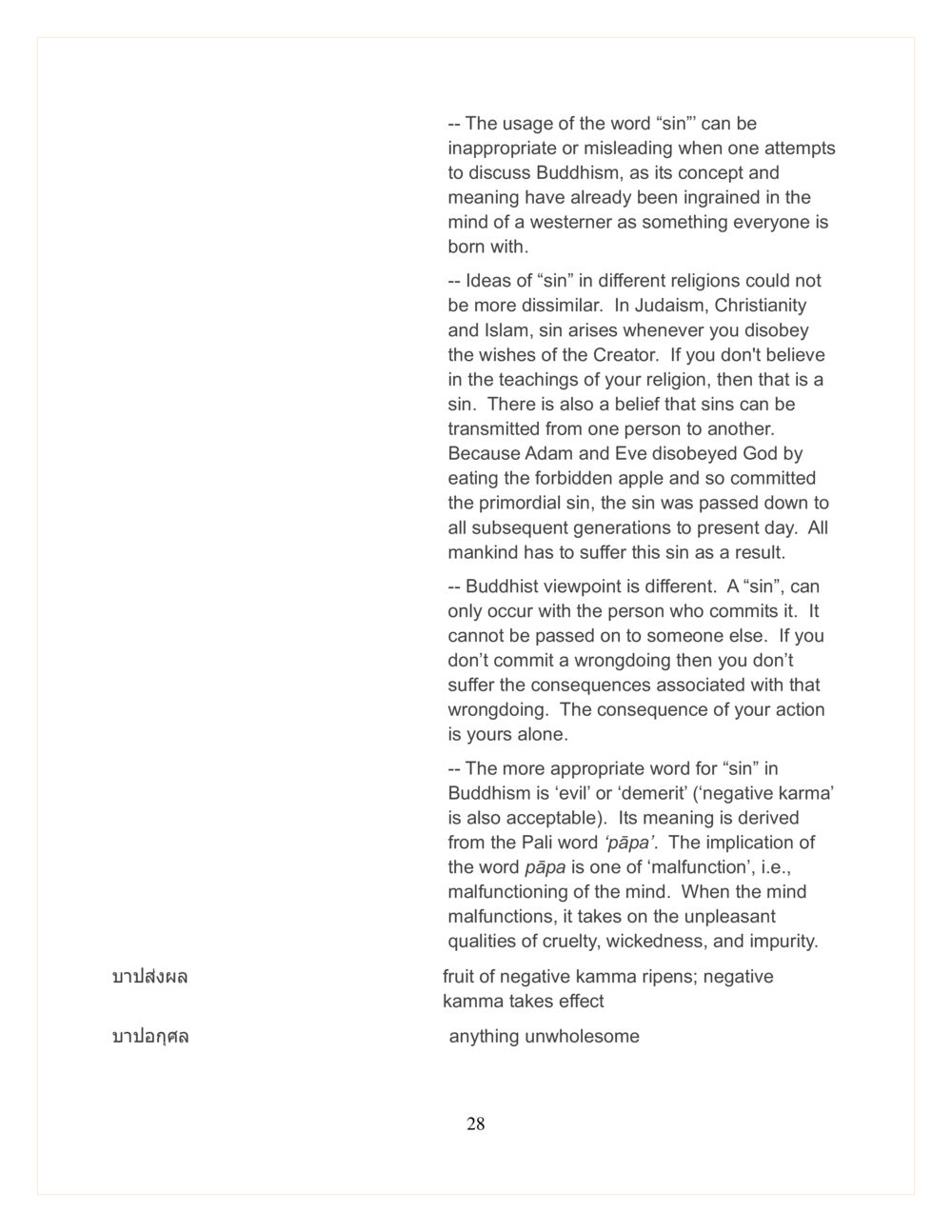Understanding Sin in Buddhism vs. Western Religions : หน้า 28/115
DMC Translor’s handbook : หน้า 28/115 Explore how the concept of sin differs between Buddhism and Western religions, focusing on the implications for moral responsibility and karma.
0 ครั้ง

สรุปเนื้อหา
การใช้คำว่า 'บาป' อาจไม่เหมาะสมเมื่อพูดถึงพุทธศาสนา เนื่องจากความหมายของคำนี้ถูกฝังอยู่ในจิตใจของชาวตะวันตกว่าทุกคนเกิดมาพร้อมกับบาป ในศาสนายูดาย คริสต์ และอิสลาม บาปเกิดจากการไม่ปฏิบัติตามคำสั่งของพระเจ้าและสามารถถ่ายทอดได้จากคนหนึ่งไปยังอีกคนหนึ่ง นอกจากนี้ยังมีความเชื่อว่าบาปดั้งเดิมจากอาดัมและอีฟถูกถ่ายทอดไปยังคนทั้งปวง ในทางกลับกันในพุทธศาสนา บาปเกิดขึ้นเฉพาะกับบุคคลที่กระทำเท่านั้น และไม่ได้ถูกถ่ายทอดให้ผู้อื่น อันมีผลให้ผู้ที่ทำดีจะไม่ต้องรับผลจากการกระทำที่ไม่ดี คำที่เหมาะสมกับบาปในพุทธศาสนาคือ 'อธรรม' หรือ 'บาป' ที่สะท้อนถึงความผิดปกติของจิตใจ ซึ่งรวมถึงความโหดร้ายและความไม่บริสุทธิ์ที่เกิดจากการทำร้ายตนเองและผู้อื่น
หัวข้อประเด็น
-ความแตกต่างของบาปในศาสนาพุทธและศาสนาตะวันตก
-การรับผิดชอบทางศีลธรรมในพุทธศาสนา
-ความหมายของบาปและอธรรมในพุทธศาสนา
-ผลของกามและทัศนคติทางจิตใจ



















































































































